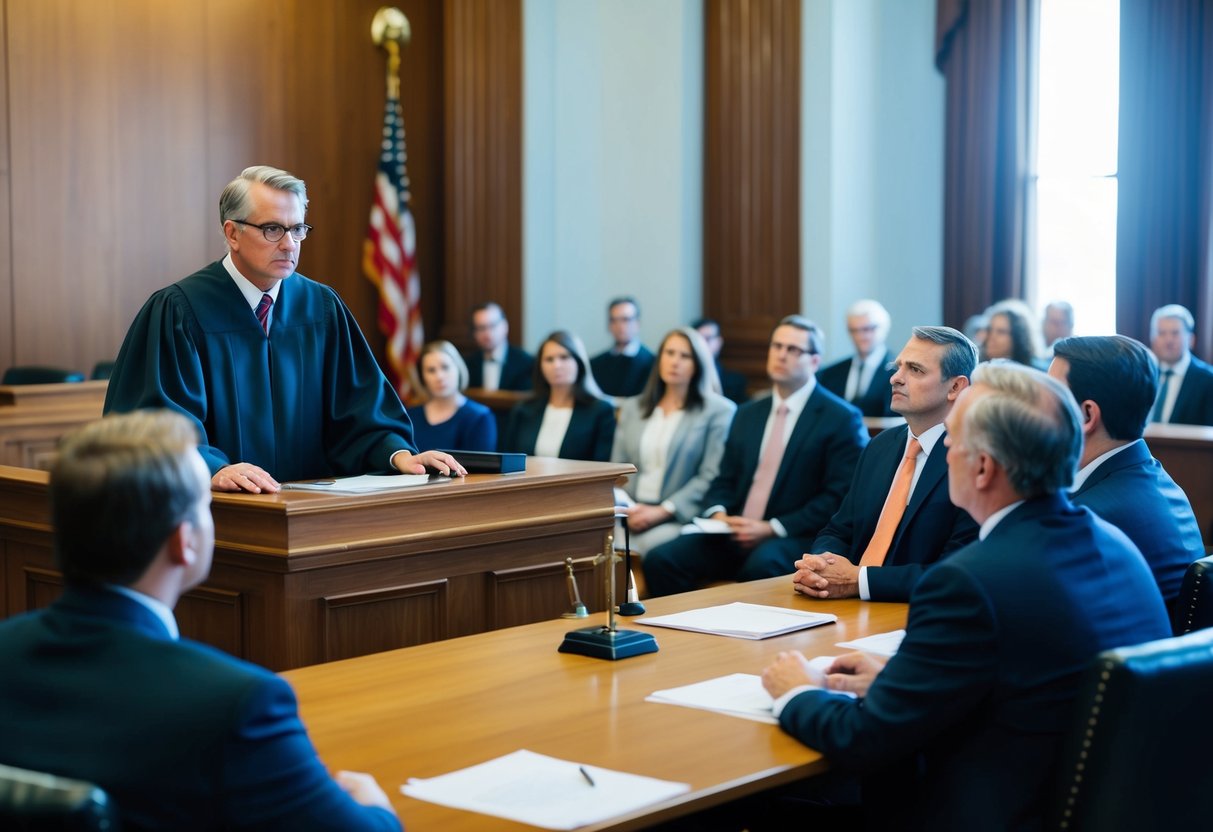Understanding Felony Charges in Marietta
Felony charges in Marietta can include serious crimes like murder and armed robbery. The criminal justice system in Cobb County deals with these offenses and ensures the rights of the accused are protected.
The Legal Definition and Categories of Felonies
In Georgia, felonies are serious crimes punishable by more than one year in prison. Common felonies include murder, rape, aggravated assault, armed robbery, and kidnapping.
- Murder: Intentional killing of another person.
- Rape: Non-consensual sexual intercourse.
- Aggravated Assault: Attack causing severe injury, often with a weapon.
- Armed Robbery: Stealing with the use of a weapon.
- Drug Trafficking: Large-scale distribution of illegal substances.
Some felonies carry harsher penalties like life imprisonment or being punishable by death.
The Criminal Justice System in Cobb County
In Cobb County, felony cases are handled by the Superior Court. The process begins with an arrest and initial appearance before a judge. An indictment follows, leading to an arraignment where the accused enters a plea.
- Arrest: Taken into custody.
- Initial Appearance: Before a judge.
- Indictment: Formal charge.
- Arraignment: Plea entered.
The court ensures fair proceedings through pre-trial motions, jury selection, and the trial. Sentences may vary based on the nature of the crime and the individual’s criminal history.
Rights of the Accused in Merietta, Georgia
Those accused of felonies in Georgia have specific rights:
- Right to a fair trial: The accused can defend themselves in court.
- Right to legal representation: They can hire a lawyer or have one appointed.
- Right to remain silent: They do not have to testify against themselves.
- Right to due process: Fair treatment under the law.
Ensuring these rights helps maintain justice and reduces the stigma of a criminal charge. Rights are safeguarded from the arrest through the entire judicial process.
Navigating Criminal Charges with Legal Assistance

Facing criminal charges in Marietta can be overwhelming. It is crucial to seek legal representation from a skilled attorney who can advocate for your rights and help you through each stage of the legal process.
The Role of Experienced Criminal Defense Attorneys
An experienced criminal defense attorney can make a significant difference in the outcome of a case. They provide expertise in legal representation, from misdemeanors to felony charges. Defense attorneys understand how to build a strong defense strategy and negotiate effectively with prosecutors.
Their role includes gathering evidence, representing clients during hearings, and advocating aggressively on behalf of the accused. They also help clients understand the potential consequences and possible defenses for charges like reckless driving.
The Waltman Firm: Approach and Expertise
The Waltman Firm, led by Holly Waltman, offers specialized advocacy for those facing criminal charges in Marietta. The firm is known for its tenacity and client-focused approach. They provide a free initial consultation to discuss the specifics of each case. Their attorneys work closely with clients to develop tailored defense strategies.
The Waltman Firm excels in handling complex cases, offering services that range from dealing with misdemeanor charges to serious felony accusations. They emphasize clear communication and aggressive advocacy to protect their clients’ rights.
Strategic Defense and Early Intervention
Early intervention by a criminal defense lawyer is crucial in shaping the direction of a case. The initial consultation often sets the tone for the defense strategy. Attorneys can provide guidance on plea bargains, and can potentially mitigate harsh penalties.
A proactive defense approach includes immediate investigation, communication with the prosecution, and seeking early resolution through negotiations. This strategy is vital in cases like reckless driving or other charges where quick action can lead to more favorable outcomes for clients.
Consequences of Convictions and the Importance of Rights

Felony convictions in Marietta can lead to severe penalties, impacting various aspects of life. Protecting one’s rights throughout the legal process is essential to ensure a just outcome and to mitigate these consequences.
Potential Penalties and Long-Term Impact
A felony conviction often results in lengthy prison sentences that can last for many years. In addition to prison time, convicted felons may face significant fines and be required to perform community service.
Those found guilty on charges like domestic violence or battery could see even harsher penalties. Having prior convictions can exacerbate sentencing. Beyond these immediate punishments, the long-term impact includes challenges in finding employment and housing.
Felons often lose the right to vote and the ability to own firearms.
Preserving Civil Rights after a Conviction
Preserving civil rights after a felony conviction is crucial. A fair trial is a fundamental right that must be upheld. Knowing one’s legal rights can help navigate the justice system and mitigate some penalties.
A convicted felon can face civil rights restrictions, but there are legal avenues to restore some of them. This includes appealing wrongful convictions and seeking legal advice on how to restore voting rights or gain employment. Community organizations often help felons understand their rights and work towards restoring them.
Probation and parole can also provide opportunities to maintain some freedoms while serving a sentence.
Overcoming the Challenges Post-Conviction
After a conviction, adapting to life can be difficult. Employment is one significant challenge, as many employers hesitate to hire convicted felons. Education programs and vocational training can aid in skills development, increasing job opportunities.
Reintegrating into the community is another hurdle. Support groups and mentorship programs can help individuals overcome stigma and rebuild their lives. Legal assistance is vital in navigating these challenges. Lawyers with experience in post-conviction issues can help with housing, employment, and rights restoration.
Understanding the consequences of felony convictions and knowing one’s rights can help mitigate the harshest outcomes and support a smoother reintegration process.




